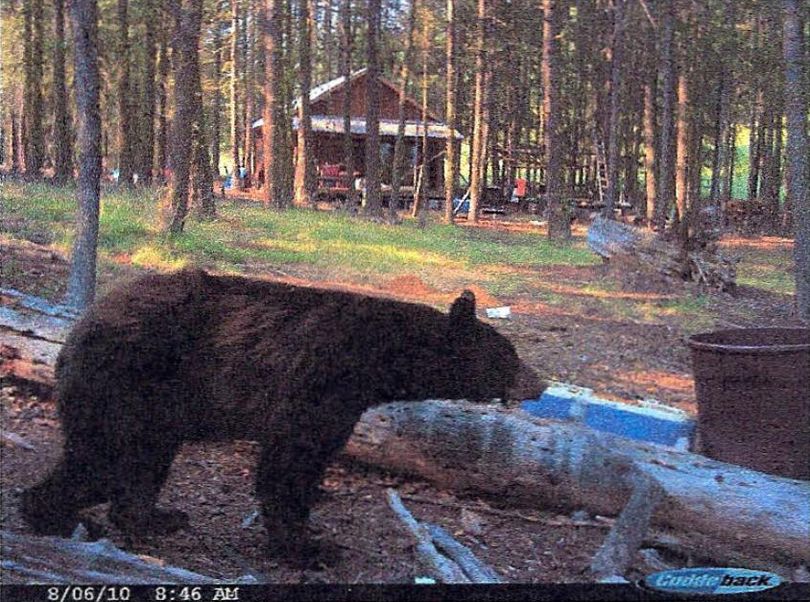New rule puts bite on people who feed bears

WILDLIFE LAWS -- Feeding black bears has always been a bad idea, but starting this year, it's also against the law in Washington.
Two new state laws went into effect in June that prohibit – intentionally or otherwise – leaving food or food waste in places where it can attract bears and other wild carnivores.
“This is the time of year when bears are looking to build up as much fat as possible to get through winter,” said Mike Cenci, deputy Washington Department of Fish and Wildlife police chief. “Putting food scraps out for them or leaving garbage cans or pet food exposed is an open invitation for them to pay you and your neighbors a visit.”
It's also an invitation for Fish and Wildlife police officers to visit and give you a ticket.
Read on for more details from the WDFW.
While black bears rarely attack people in the wild, they can pose a danger to public safety if they become accustomed to humans, Cenci said. That can present some tough choices for wildlife officers responsible for managing those animals, he said.
“Too often, relocating a bear that has learned to scavenge people’s leftovers results just moves the problem somewhere else,” Cenci said. “When that happens, we often have to destroy those animals.”
One new law subjects anyone who “intentionally feeds or attempts to feed” bears and other wild carnivores to a fine of up to $1,000, Cenci said. Another law authorizes a fine of $87 for those who “negligently feed or attempt to feed” those animals.
Cenci said people can avoid feeding wild animals unintentionally by:
- Securing garbage and compost, particularly when bears have been reported in the area.
- Removing attractants such as bird feeders.
- Keeping pet food and pets inside or otherwise secured.
- Cleaning barbecue grills.
Black bears are by far the most common species among Washington’s large wild carnivores, with up to 30,000 estimated to range across the state. They eat both meat and vegetation, increasing the likelihood that they will be attracted to human food, pet food and garbage.
Cougars and wolves will scavenge for food, but more often prey on other animals, wild and domestic, Cenci said.
“Food is involved virtually every time we respond to a call about a bear sighted in a neighborhood,” he said. “The new laws are designed to encourage people to take more responsibility for that situation, both for their own safety and for the welfare of bears and other wildlife.
